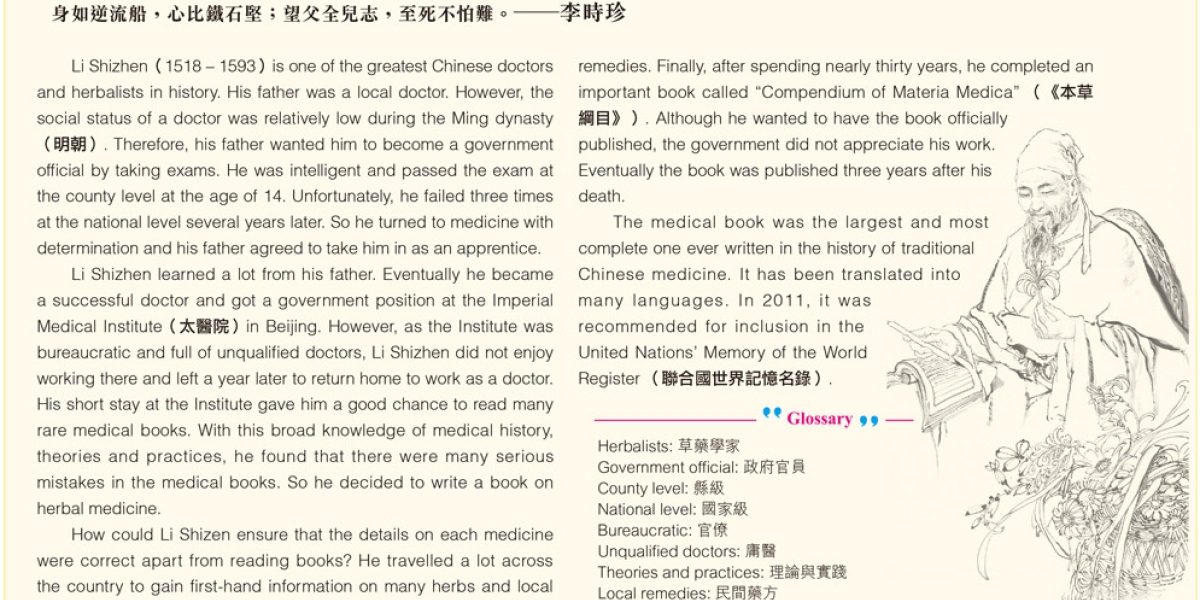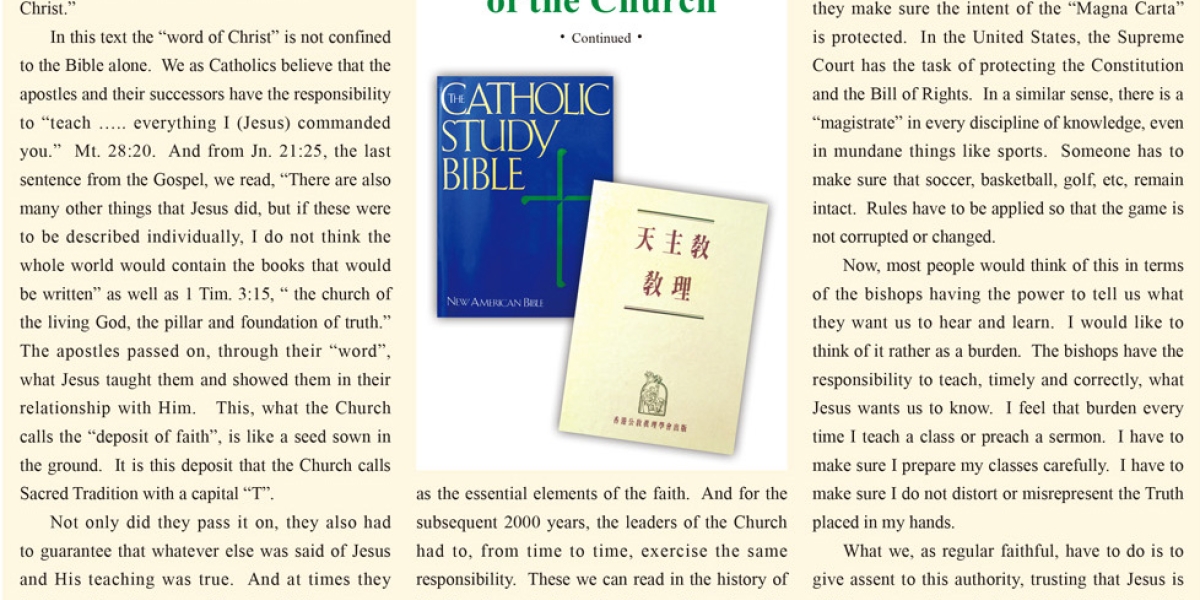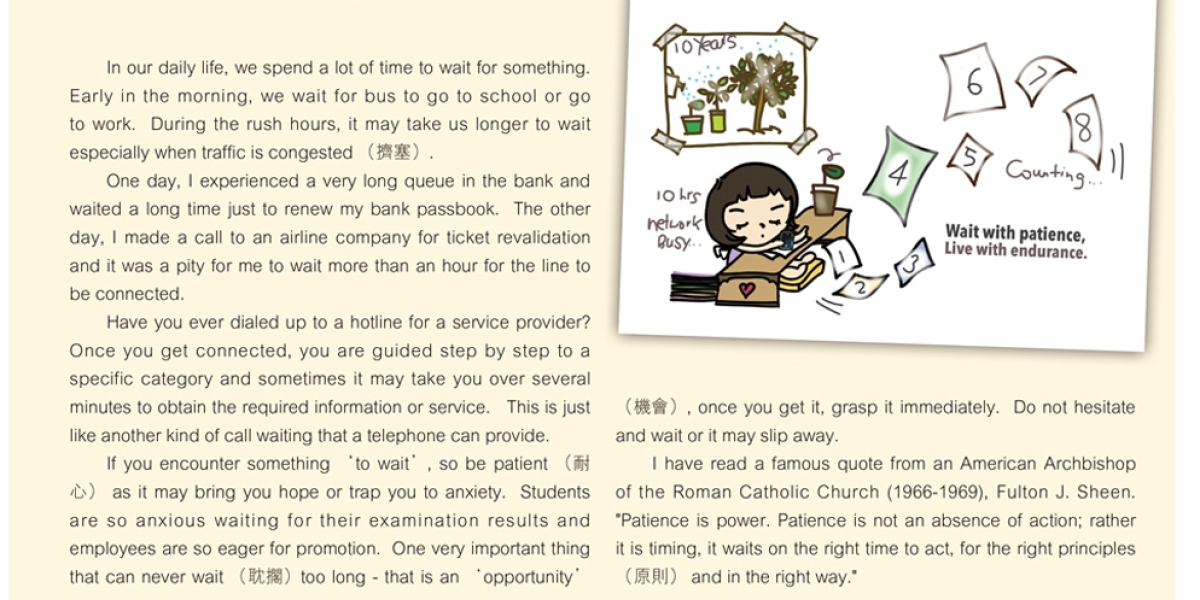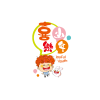昔日文章


Famous Quotations
2013.11.03
Li Shizhen | 李時珍
My body is like a boat in the counter current and my heart is like a strong stone. I hope, Father, you will let me fulfil my ambition and I will fear no difficulties until death. — Li Shizhen
身如逆流船,心比鐵石堅;望父全兒志,至死不怕難。──李時珍
Li Shizhen(1518 – 1593)is one of the greatest Chinese doctors and herbalists in history. His father was a local doctor. However, the social status of a doctor was relatively low during the Ming dynasty (明朝). Therefore, his father wanted him to become a government official by taking exams. He was intelligent and passed the exam at the county level at the age of 14. Unfortunately, he failed three times at the national level several years later. So he turned to medicine with determination and his father agreed to take him in as an apprentice.
Li Shizhen learned a lot from his father. Eventually he became a successful doctor and got a government position at the Imperial Medical Institute(太醫院)in Beijing. However, as the Institute was bureaucratic and full of unqualified doctors, Li Shizhen did not enjoy working there and left a year later to return home to work as a doctor. His short stay at the Institute gave him a good chance to read many rare medical books. With this broad knowledge of medical history, theories and practices, he found that there were many serious mistakes in the medical books. So he decided to write a book on herbal medicine.
How could Li Shizen ensure that the details on each medicine were correct apart from reading books? He travelled a lot across the country to gain first-hand information on many herbs and local remedies. Finally, after spending nearly thirty years, he completed an important book called “Compendium of Materia Medica” (《本草綱目》). Although he wanted to have the book officially published, the government did not appreciate his work. Eventually the book was published three years after his death.
The medical book was the largest and most complete one ever written in the history of traditional Chinese medicine. It has been translated into many languages. In 2011, it was recommended for inclusion in the United Nations’ Memory of the World Register (聯合國世界記憶名錄).
Herbalists: 草藥學家
Government official: 政府官員
County level: 縣級
National level: 國家級
Bureaucratic: 官僚
Unqualified doctors: 庸醫
Theories and practices: 理論與實踐
Local remedies: 民間藥方


Famous Quotations
2013.06.29
I only know that I know nothing. — Socrates | 我只知道自己無知。──蘇格拉底
Socrates was a famous philosopher and teacher in ancient Greece. While many teachers of his time told students directly the facts and information, Socrates wanted his students to question things. “What is wisdom?” “Is our government good?” “Why do you think that it is the right thing to do?” This teaching method, which has become the well-known “Socratic Method”, is the oldest but still the most powerful teaching technique to foster critical thinking.
Socrates was born approximately in 469 BC. He never wrote anything. We learned about him through the writings of his student, Plato, who was also a Greek philosopher.
As an adult, Socrates was a stone-cutter and then served in the army. When he grew older, he spent most of his time discussing all sorts of things in the marketplace in Athens. He challenged people to think better by showing them the problems in their logic. Eventually, he had a group of young students who wanted to learn from him. He taught them without charging any fee. Socrates was poor and hated wealth, which he thought would corrupt people.
In 399 BC, some of the people of Athens were angry at Socrates for the way he was teaching young people. They accused him of disrespecting the gods of Greek belief and corrupting the youth. He was convicted and sentenced to death. He thought that it was morally right to defend his principles and did not escape from the prison as suggested by his friend. So when the guards gave him a cup of poison, he drank it and died.
Glossary
Greece: 希臘
Critical thinking: 思辯能力
Plato: 柏拉圖
Athens: 雅典
Logic: 邏輯
Corrupt: 敗壞
Disrespecting the gods: 不尊敬神
Poison: 毒藥


Neither East Nor West
2013.06.16
Magisterium 教會訓導權 Teaching Authority of the Church
Last week we looked at Rom. 10:14-15 (“And how can people preach unless they are sent?”) and considered the role of the bishops and priests as teachers of the truth. This week we will look at the content of the truth being passed on.
Rom. 10:17, “faith comes from what is heard, and what is heard comes through the word of Christ.”
In this text the “word of Christ” is not confined to the Bible alone. We as Catholics believe that the apostles and their successors have the responsibility to “teach ….. everything I (Jesus) commanded you.” Mt. 28:20. And from Jn. 21:25, the last sentence from the Gospel, we read, “There are also many other things that Jesus did, but if these were to be described individually, I do not think the whole world would contain the books that would be written” as well as 1 Tim. 3:15, “ the church of the living God, the pillar and foundation of truth.” The apostles passed on, through their “word”, what Jesus taught them and showed them in their relationship with Him. This, what the Church calls the “deposit of faith”, is like a seed sown in the ground. It is this deposit that the Church calls Sacred Tradition with a capital “T”.
Not only did they pass it on, they also had to guarantee that whatever else was said of Jesus and His teaching was true. And at times they had to refute what was said or taught by someone else. In Acts 15 we find the first controversy of the Church when the apostles, led by Peter, had to clarify and reaffirm what the Church understood as the essential elements of the faith. And for the subsequent 2000 years, the leaders of the Church had to, from time to time, exercise the same responsibility. These we can read in the history of the Church, particularly the history of heresies. We can also see how disturbing and confusing it has been since the Reformation.
In this sense, we believe that the “teaching Church”, under the stewardship of the bishops headed by the Pope, teaches us authentically what Jesus Himself would say. This is the content of the “magisterium”. We can see this word, “magisterium”, used legally in “magistrate”, as an officer of the court who upholds the intent and interpretation of the law. In the United Kingdom, they make sure the intent of the “Magna Carta” is protected. In the United States, the Supreme Court has the task of protecting the Constitution and the Bill of Rights. In a similar sense, there is a “magistrate” in every discipline of knowledge, even in mundane things like sports. Someone has to make sure that soccer, basketball, golf, etc, remain intact. Rules have to be applied so that the game is not corrupted or changed.
Now, most people would think of this in terms of the bishops having the power to tell us what they want us to hear and learn. I would like to think of it rather as a burden. The bishops have the responsibility to teach, timely and correctly, what Jesus wants us to know. I feel that burden every time I teach a class or preach a sermon. I have to make sure I prepare my classes carefully. I have to make sure I do not distort or misrepresent the Truth placed in my hands.
What we, as regular faithful, have to do is to give assent to this authority, trusting that Jesus is still in charge, through the Holy Spirit, that what we believe and apply in specific time and issue, remains His Truth to the Greater Glory and Honor of God ( Ad Majorem Dei Gloriam, 愈顯主榮).


Magic Mirror
2012.10.28
PATIENCE
In our daily life, we spend a lot of time to wait for something. Early in the morning, we wait for bus to go to school or go to work. During the rush hours, it may take us longer to wait especially when traffic is congested (擠塞).
One day, I experienced a very long queue in the bank and waited a long time just to renew my bank passbook. The other day, I made a call to an airline company for ticket revalidation and it was a pity for me to wait more than an hour for the line to be connected.
Have you ever dialed up to a hotline for a service provider? Once you get connected, you are guided step by step to a specific category and sometimes it may take you over several minutes to obtain the required information or service. This is just like another kind of call waiting that a telephone can provide.
If you encounter something ‘to wait’, so be patient (耐心) as it may bring you hope or trap you to anxiety. Students are so anxious waiting for their examination results and employees are so eager for promotion. One very important thing that can never wait (耽擱)too long - that is an ‘opportunity’ (機會), once you get it, grasp it immediately. Do not hesitate and wait or it may slip away.
I have read a famous quote from an American Archbishop of the Roman Catholic Church (1966-1969), Fulton J. Sheen. "Patience is power. Patience is not an absence of action; rather it is timing, it waits on the right time to act, for the right principles (原則) and in the right way."


